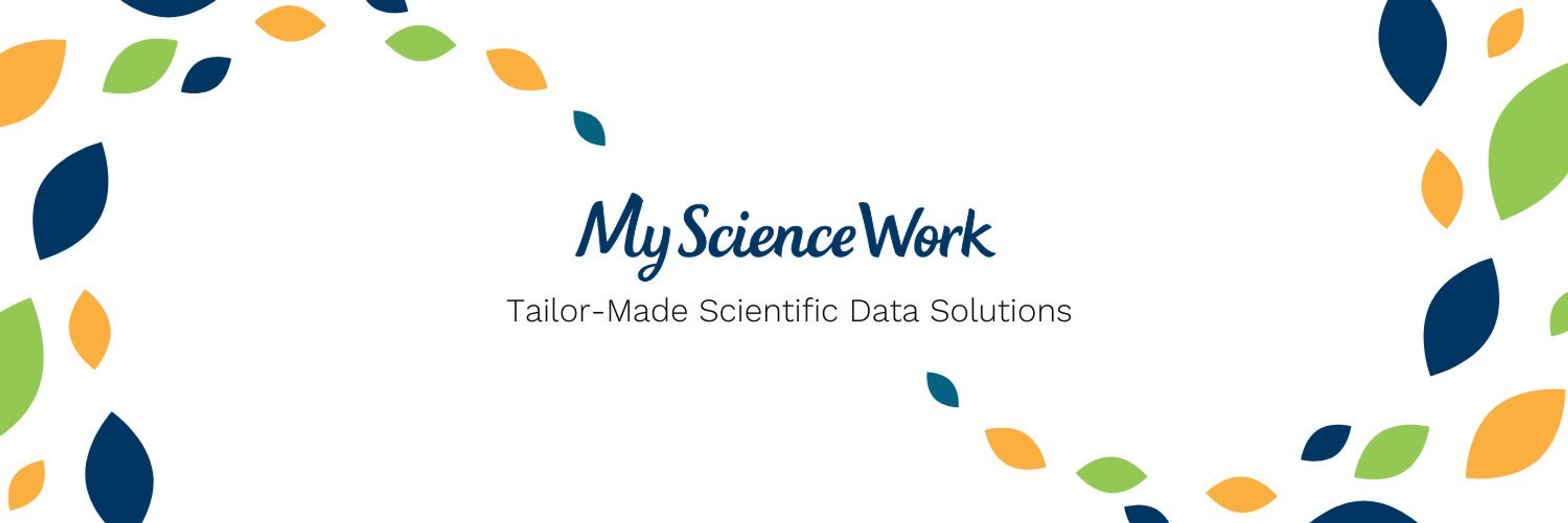
🔗 www.mysciencework.com
Merci à tous pour votre participation ! 🙌 Avec @yannmahe.bsky.social (MyScienceWork) & Adrien Sassot (@sindup.bsky.social), on a exploré comment structurer une veille efficace.
#VeilleScientifique #OpenScience
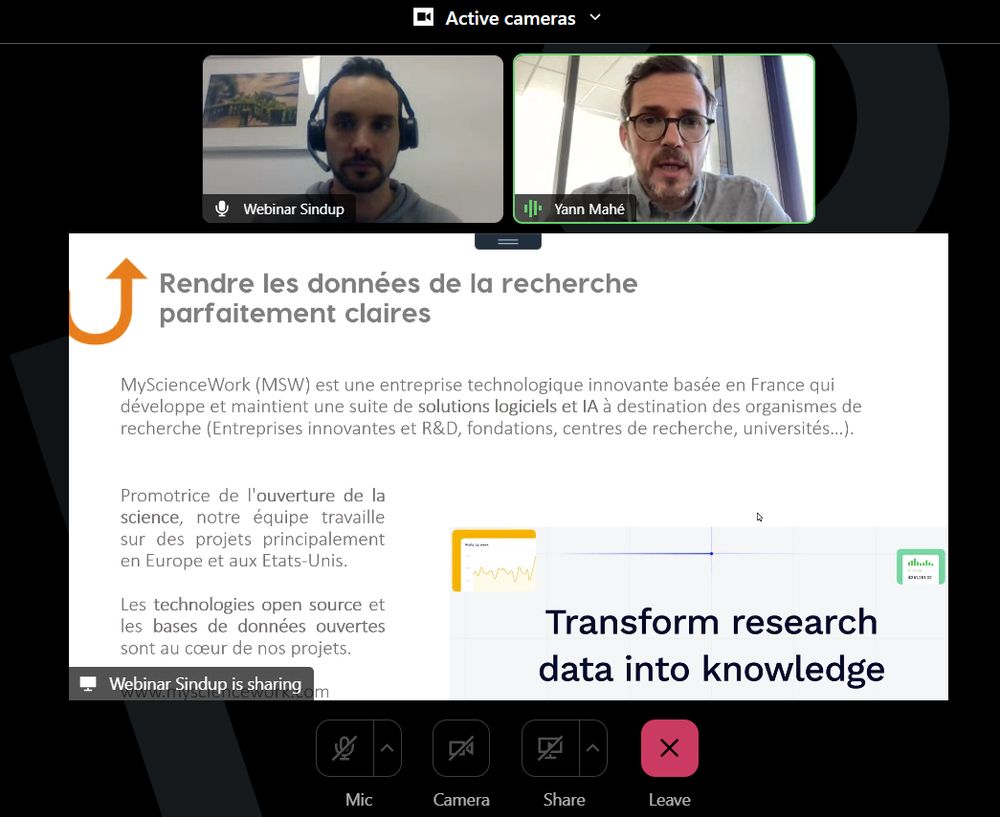
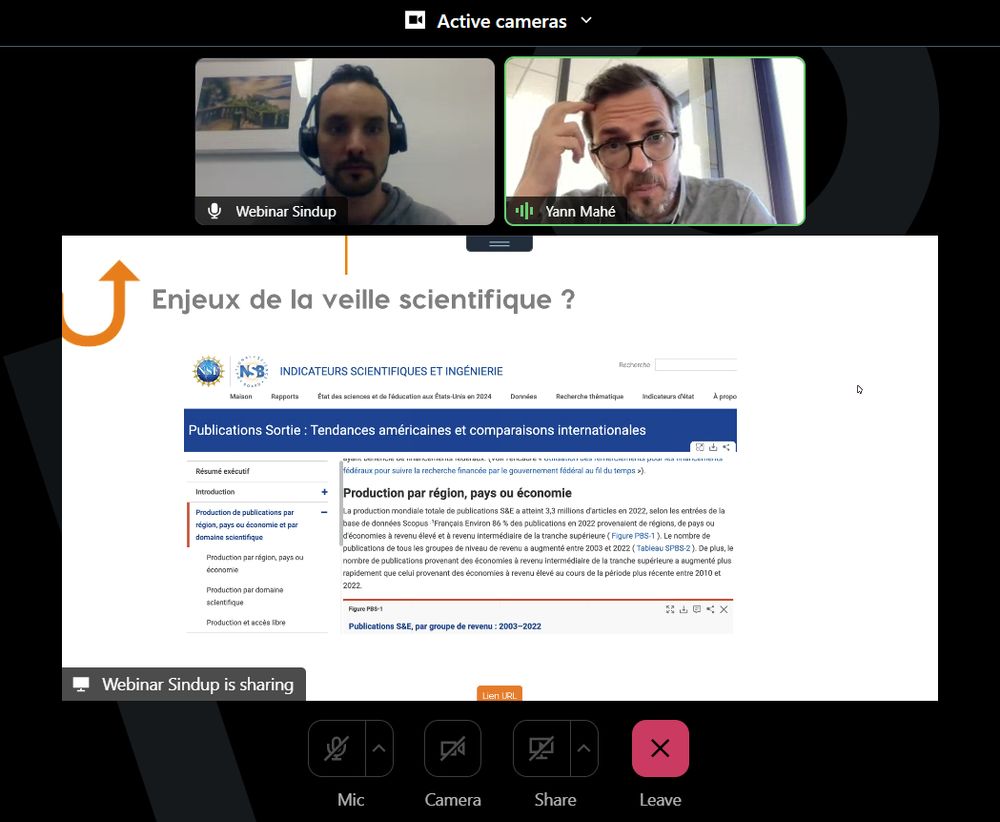
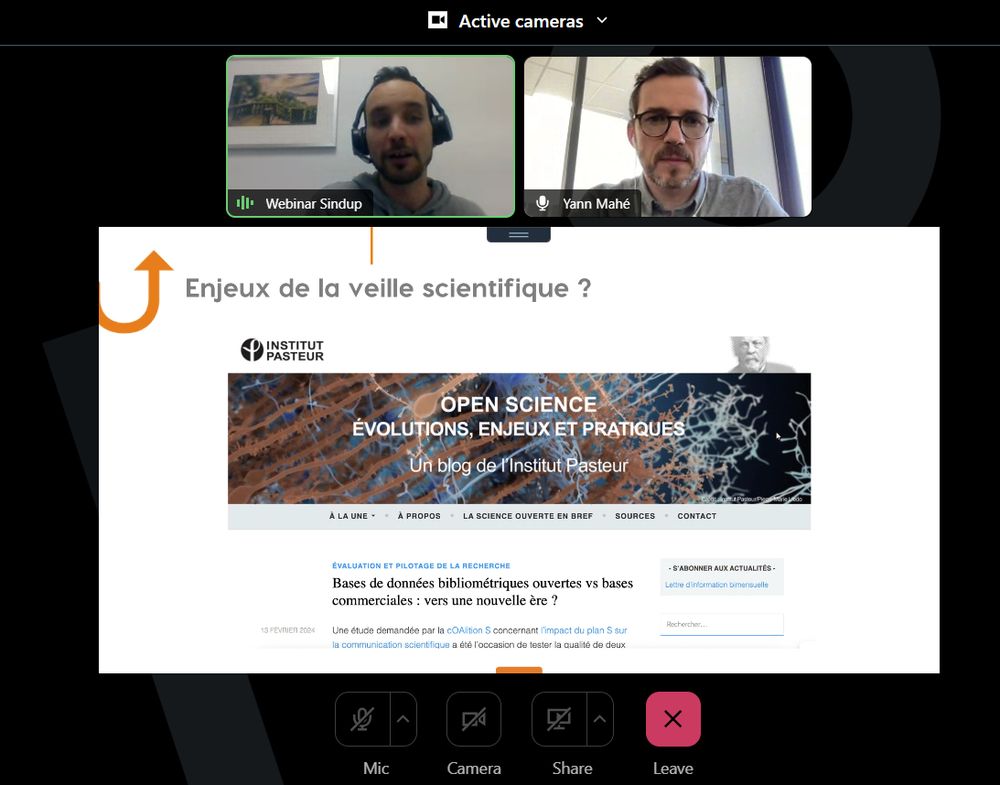
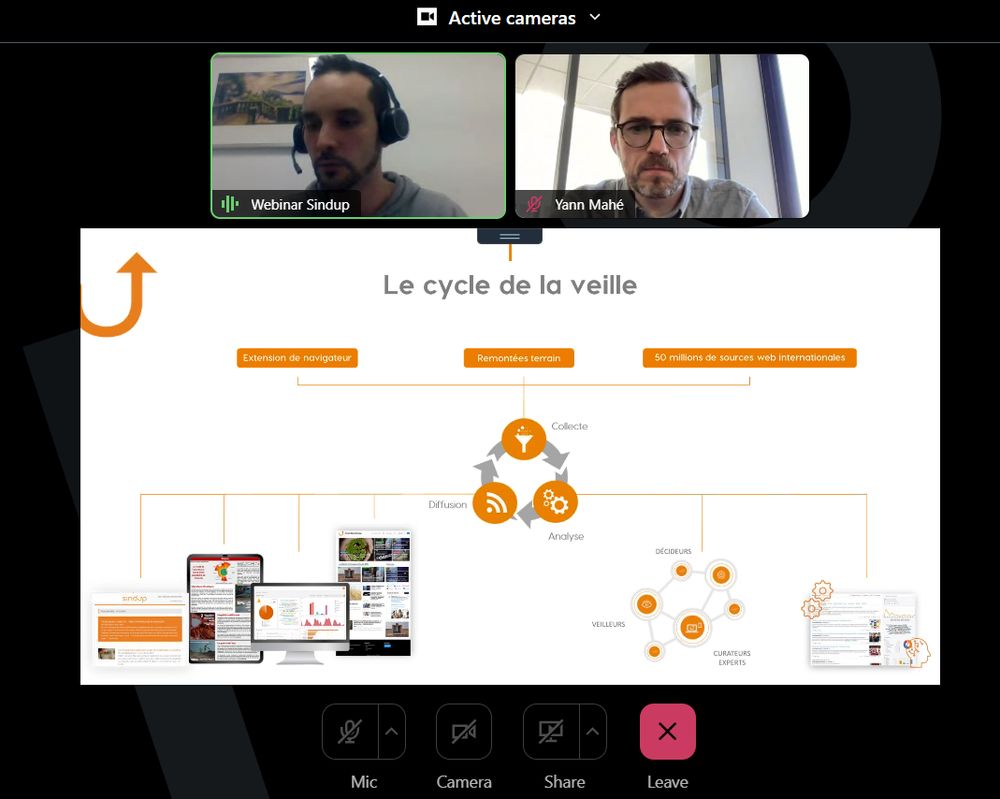
Merci à tous pour votre participation ! 🙌 Avec @yannmahe.bsky.social (MyScienceWork) & Adrien Sassot (@sindup.bsky.social), on a exploré comment structurer une veille efficace.
#VeilleScientifique #OpenScience
We’ve revamped our website to make it easier than ever for research institutions to explore how our solutions can empower their work.
✨ Fresh, modern design
🔍 Clearer insights into our open, flexible solutions
📅 Quick demo scheduling
Check it out 🔗 www.mysciencework.com
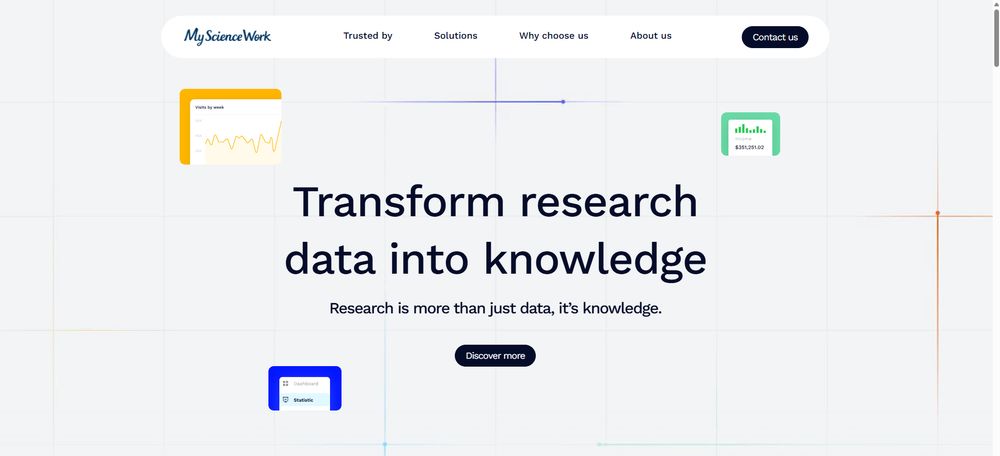
We’ve revamped our website to make it easier than ever for research institutions to explore how our solutions can empower their work.
✨ Fresh, modern design
🔍 Clearer insights into our open, flexible solutions
📅 Quick demo scheduling
Check it out 🔗 www.mysciencework.com
Are universities pushing the limits of #ResearchIntegrity? A new study on @mitpress.bsky.social raises tough questions about authorship & affiliation trends.
🔗 doi.org/10.1162/qss_...
#HigherEd
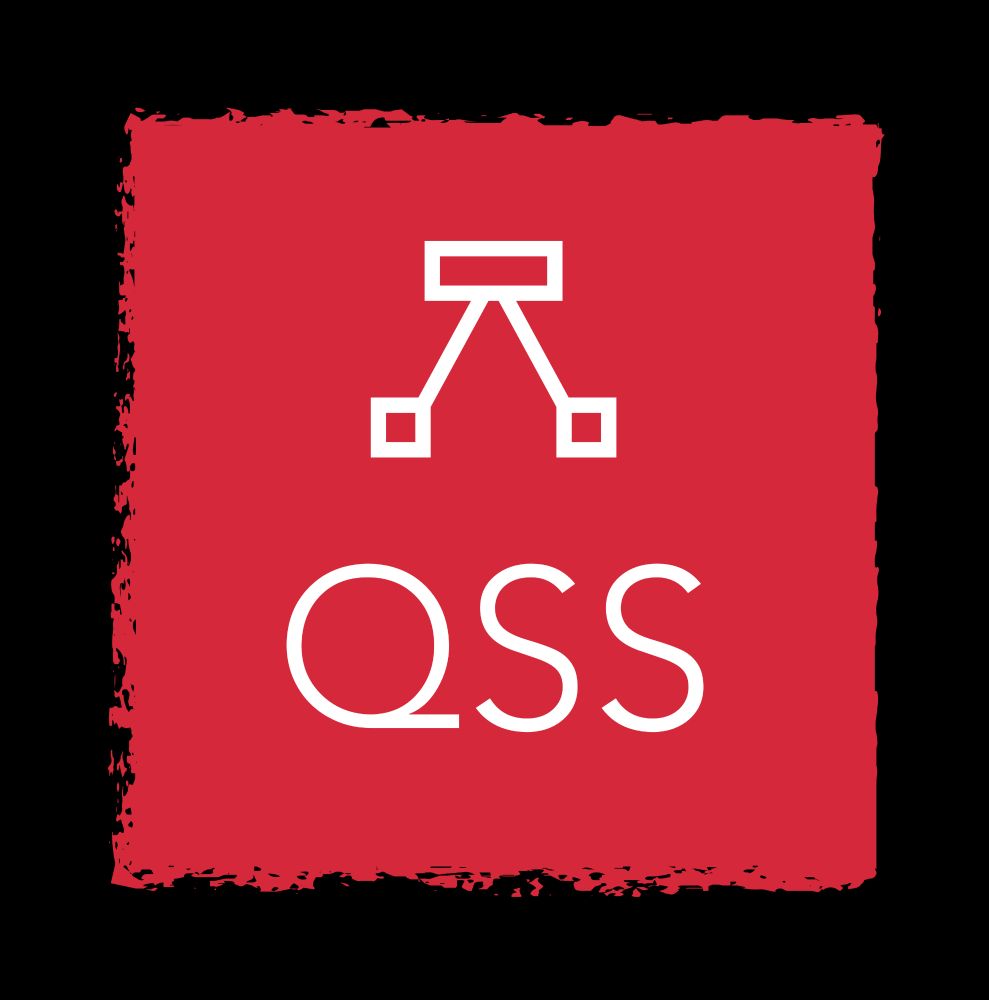
Are universities pushing the limits of #ResearchIntegrity? A new study on @mitpress.bsky.social raises tough questions about authorship & affiliation trends.
🔗 doi.org/10.1162/qss_...
#HigherEd
This study by Yulia V. Sevryugina & Yifan Li finds entire article duplications to be common in social sciences and image reuse plaguing biomedicine.
Median retraction time? 3.2 years!
Stronger policies to the rescue?
🔗 doi.org/10.1080/0898...
#ResearchIntegrity
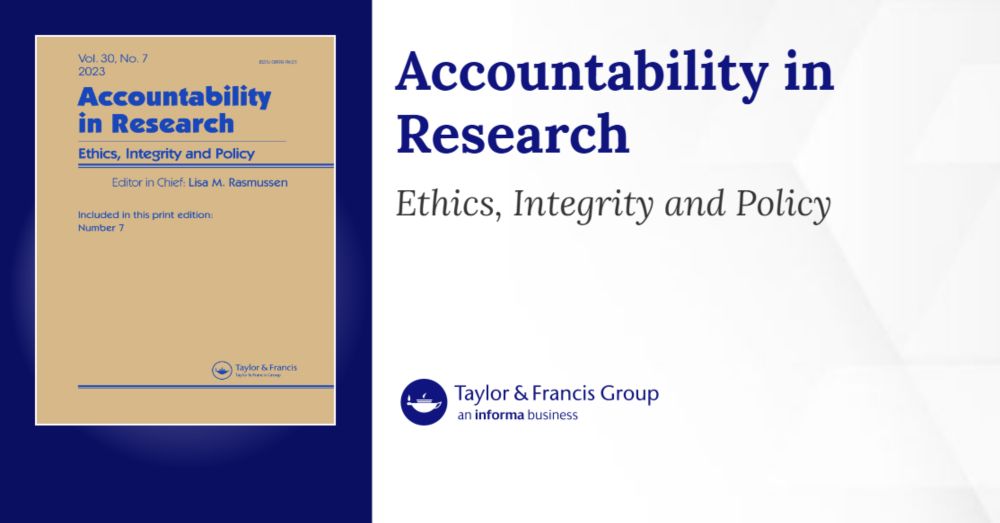
This study by Yulia V. Sevryugina & Yifan Li finds entire article duplications to be common in social sciences and image reuse plaguing biomedicine.
Median retraction time? 3.2 years!
Stronger policies to the rescue?
🔗 doi.org/10.1080/0898...
#ResearchIntegrity
Une session enrichissante avec @yannmahe.bsky.social, Ghislaine Chartron, @thomasparisot.bsky.social et Antoine Raulin !
Merci au @gf2i.bsky.social pour ces échanges !
📸 L'événement en images :
#IEXPO2025 #IA
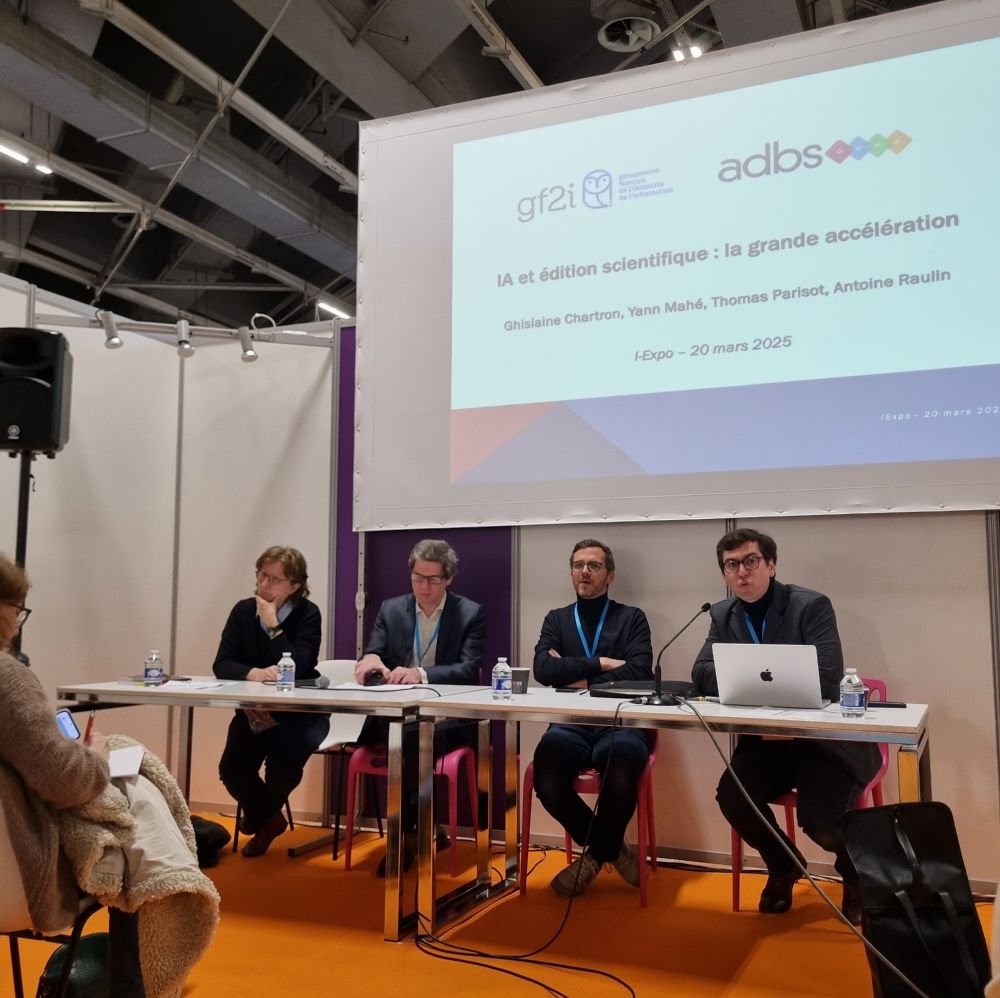
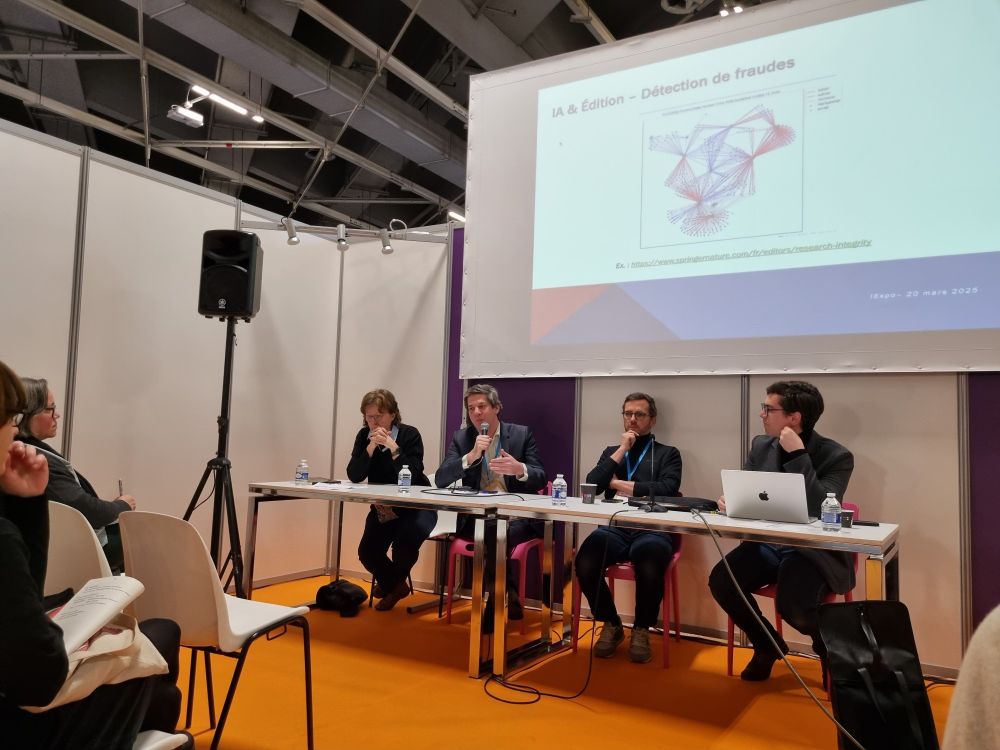
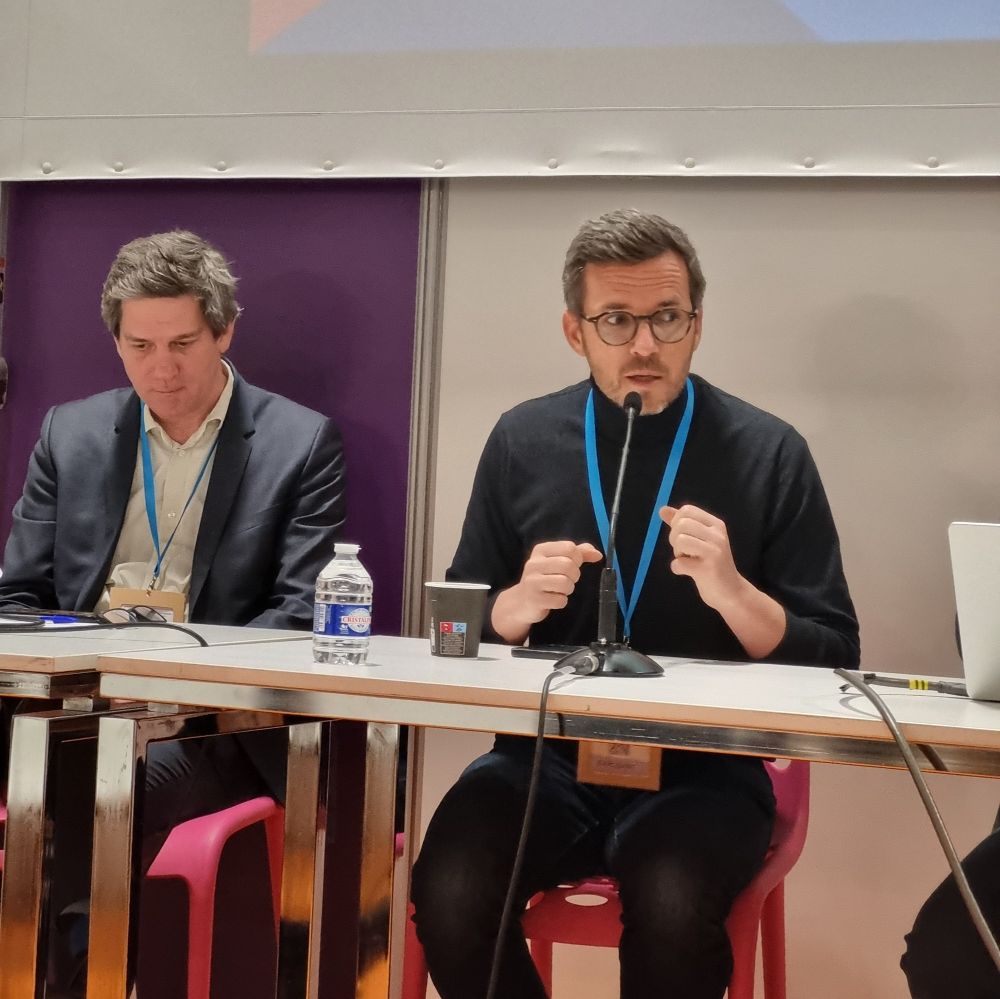
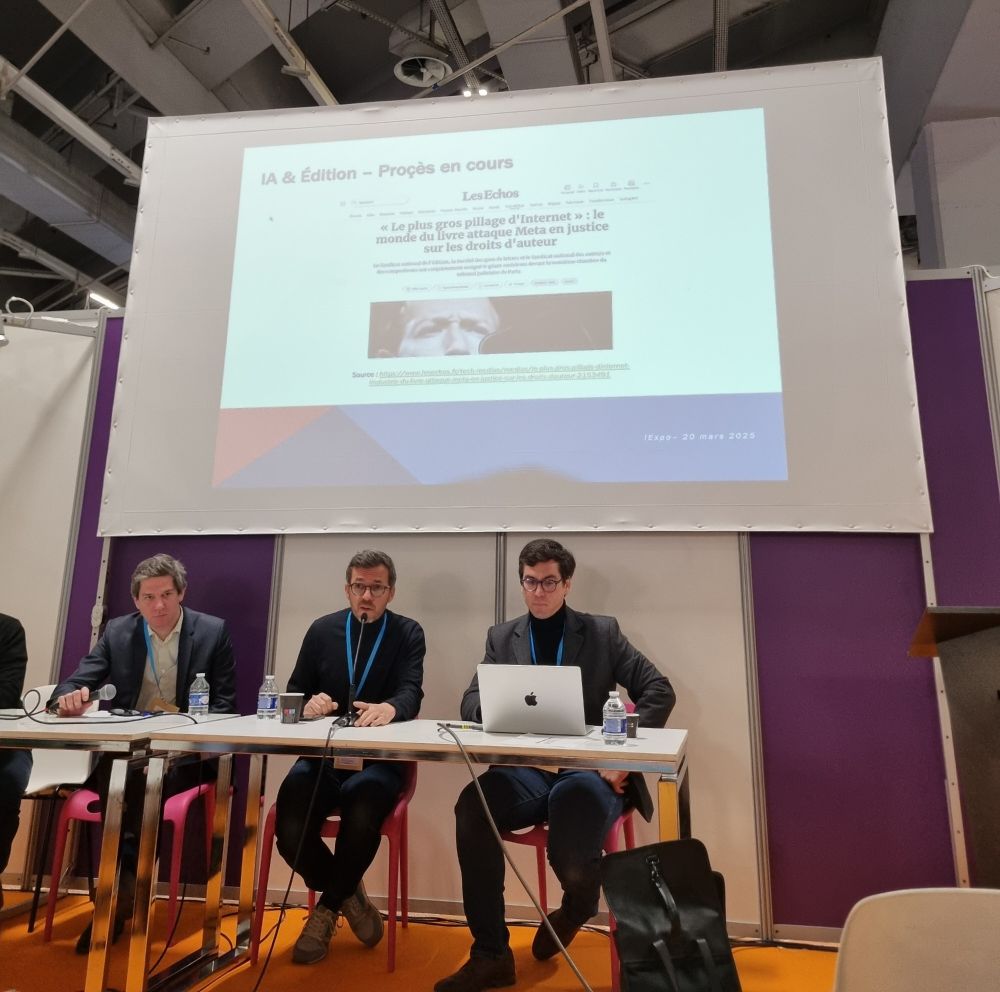
Une session enrichissante avec @yannmahe.bsky.social, Ghislaine Chartron, @thomasparisot.bsky.social et Antoine Raulin !
Merci au @gf2i.bsky.social pour ces échanges !
📸 L'événement en images :
#IEXPO2025 #IA
📅 20 mars | 09h30 – 10h15
📍 Atelier @gf2i.bsky.social – Porte de Versailles
@yannmahe.bsky.social et des experts exploreront l’impact de l’IA sur la diffusion du savoir. Rejoignez-nous !
🔗Badge gratuit : shorturl.at/ZLLUc

📅 20 mars | 09h30 – 10h15
📍 Atelier @gf2i.bsky.social – Porte de Versailles
@yannmahe.bsky.social et des experts exploreront l’impact de l’IA sur la diffusion du savoir. Rejoignez-nous !
🔗Badge gratuit : shorturl.at/ZLLUc
Applying #OpenScience principles to evaluation can boost transparency, credibility, and impact. Sharing methods, data & findings openly helps the whole community. Time to rethink how we evaluate?
Paper by Sarah Goodier > doi.org/10.1002/ev.2...
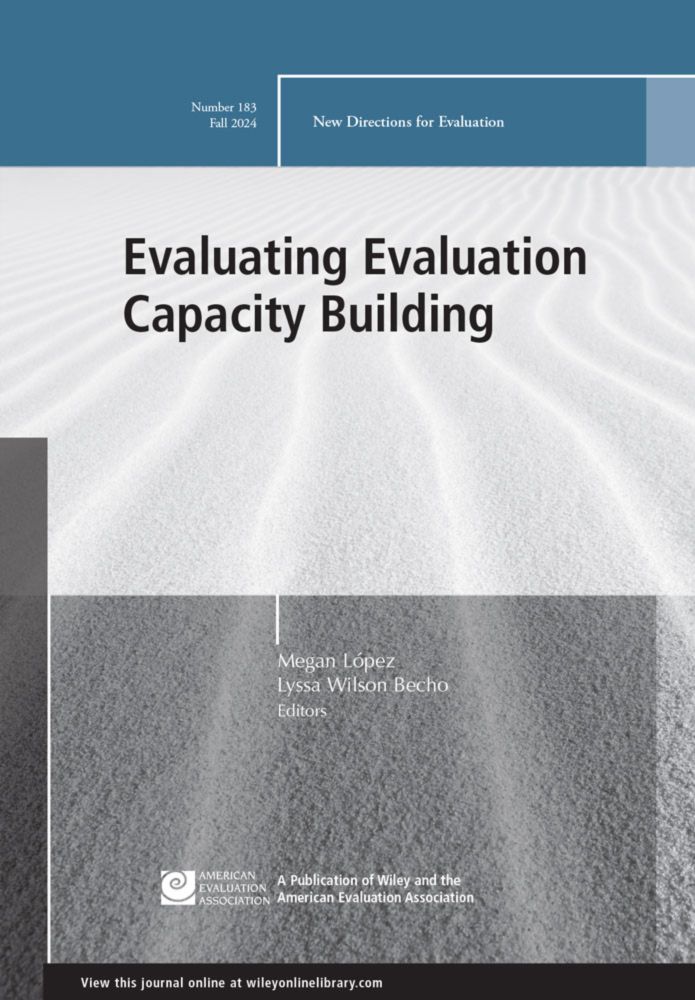
Applying #OpenScience principles to evaluation can boost transparency, credibility, and impact. Sharing methods, data & findings openly helps the whole community. Time to rethink how we evaluate?
Paper by Sarah Goodier > doi.org/10.1002/ev.2...
This study by @freddie2310.bsky.social reveals that 91% of corrections in HAL go unmentioned.
Are repositories doing enough to flag retractions & updates to maintain research integrity?
🔗 doi.org/10.1002/leap...
#OpenScience #ResearchIntegrity
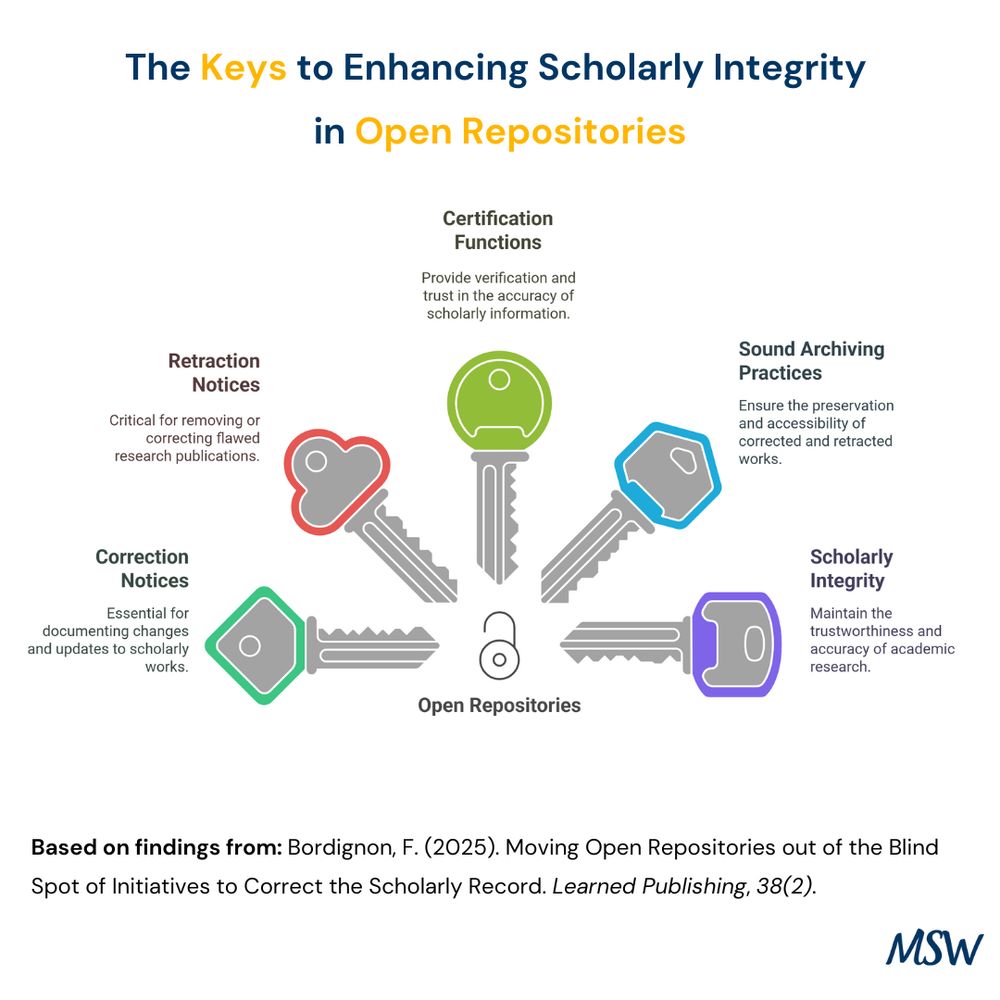
This study by @freddie2310.bsky.social reveals that 91% of corrections in HAL go unmentioned.
Are repositories doing enough to flag retractions & updates to maintain research integrity?
🔗 doi.org/10.1002/leap...
#OpenScience #ResearchIntegrity
This study by Gorka Fraga-González & team offers tips like:
✅ Using secure, version-controlled platforms
✅ Automating workflows, and so much more
Small steps = big impact!
Full paper here > doi.org/10.1038/s415...
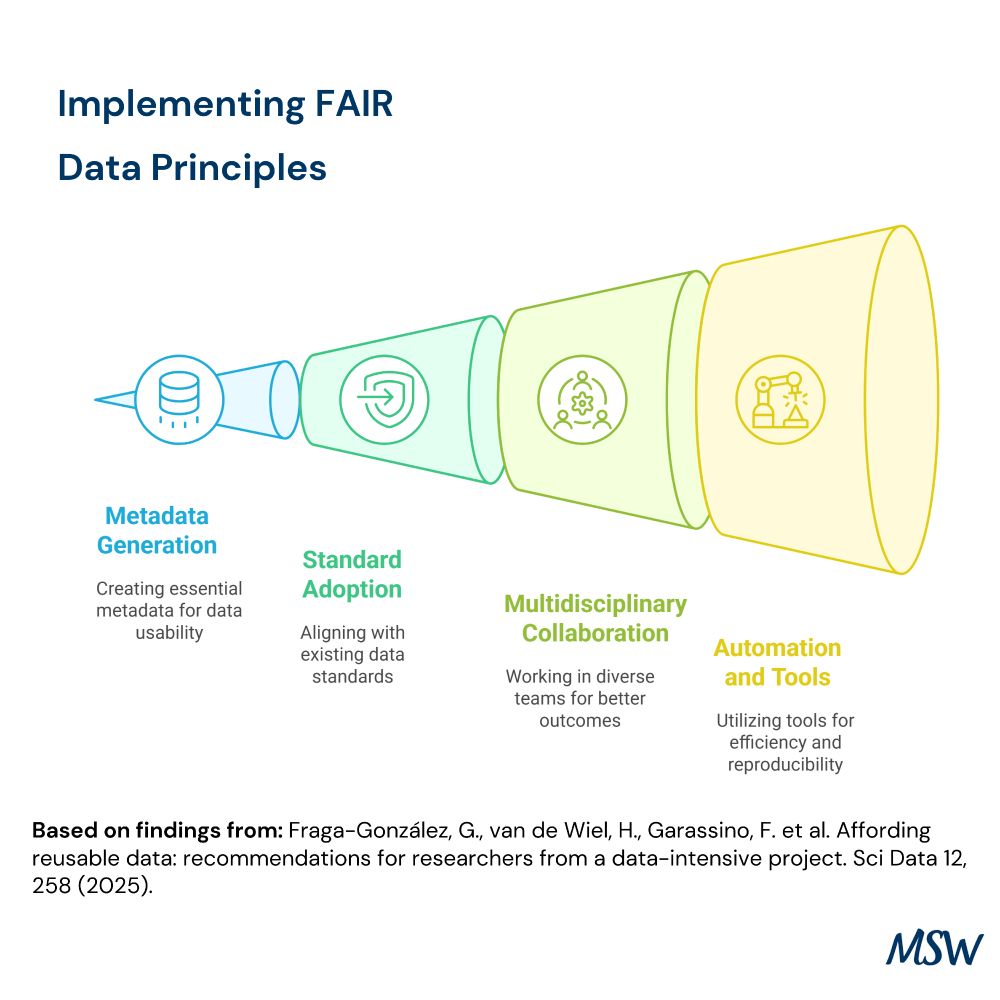
This study by Gorka Fraga-González & team offers tips like:
✅ Using secure, version-controlled platforms
✅ Automating workflows, and so much more
Small steps = big impact!
Full paper here > doi.org/10.1038/s415...
This strengthens research data workflows & improves metadata quality for all institutions employing our research management system.
Big thanks to the @orcid.org team for the comprehensive support during the certification process!

This strengthens research data workflows & improves metadata quality for all institutions employing our research management system.
Big thanks to the @orcid.org team for the comprehensive support during the certification process!
On this #RareDiseasesDay, take a moment to repost this! Together, we can make the lives of millions healthier and happier 💫
Shining a light on the 300+ million people worldwide living with a rare disease. We raise awareness of their challenges and advocate for more research, care, and better policies. 🔬💪 Join us in spreading the word! 💫🗣️ #StrongerTogether @ec.europa.eu

On this #RareDiseasesDay, take a moment to repost this! Together, we can make the lives of millions healthier and happier 💫
GenAI can expand access & boost knowledge sharing—but it also risks misinformation & bias. So, where do we draw the line? 🤔
Great insights from Mohammad Hosseini et al.
🔗 doi.org/10.1162/qss_...
#OpenScience #GenAI #AIethics

GenAI can expand access & boost knowledge sharing—but it also risks misinformation & bias. So, where do we draw the line? 🤔
Great insights from Mohammad Hosseini et al.
🔗 doi.org/10.1162/qss_...
#OpenScience #GenAI #AIethics
Researchers are moving ahead from static systems to insight-driven platforms and are seeking to turn data into intelligence!
What’s driving this change? Find out in our newsletter this Friday! ⬇️
🔗 communications.mysciencework.com/en-us/hop-on...
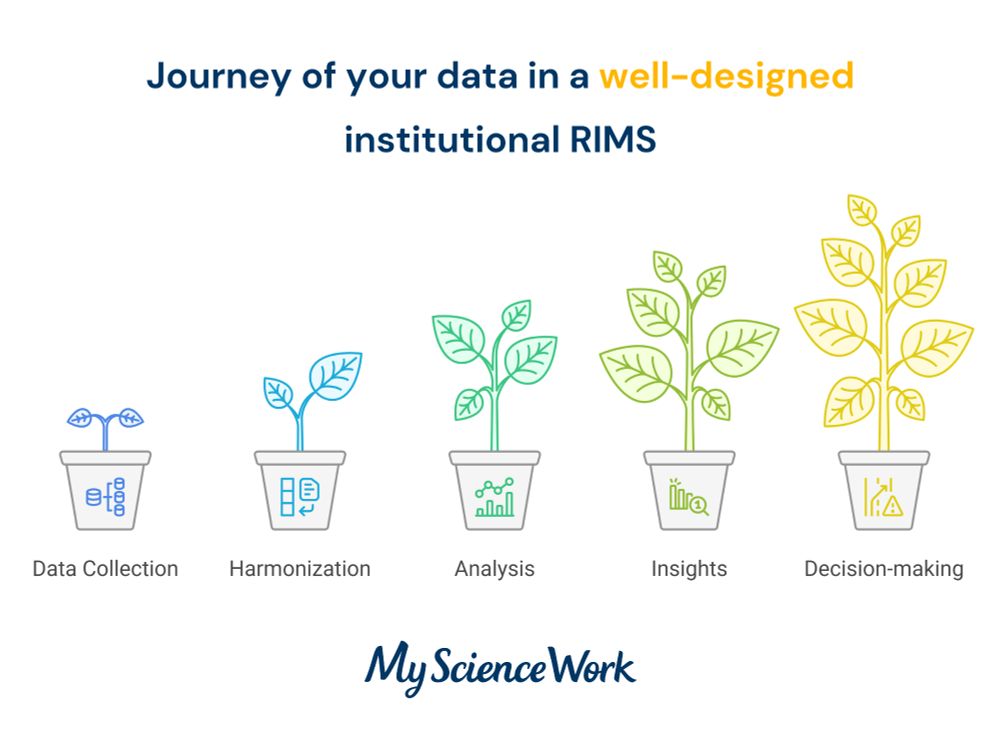
Researchers are moving ahead from static systems to insight-driven platforms and are seeking to turn data into intelligence!
What’s driving this change? Find out in our newsletter this Friday! ⬇️
🔗 communications.mysciencework.com/en-us/hop-on...
DeepGreen is automating OA article delivery, tackling complex metadata & tricky licensing. 163,750+ articles in, and more incoming! Can new licensing models improve green OA intake here?
Read 🔗 doi.org/10.1002/leap...
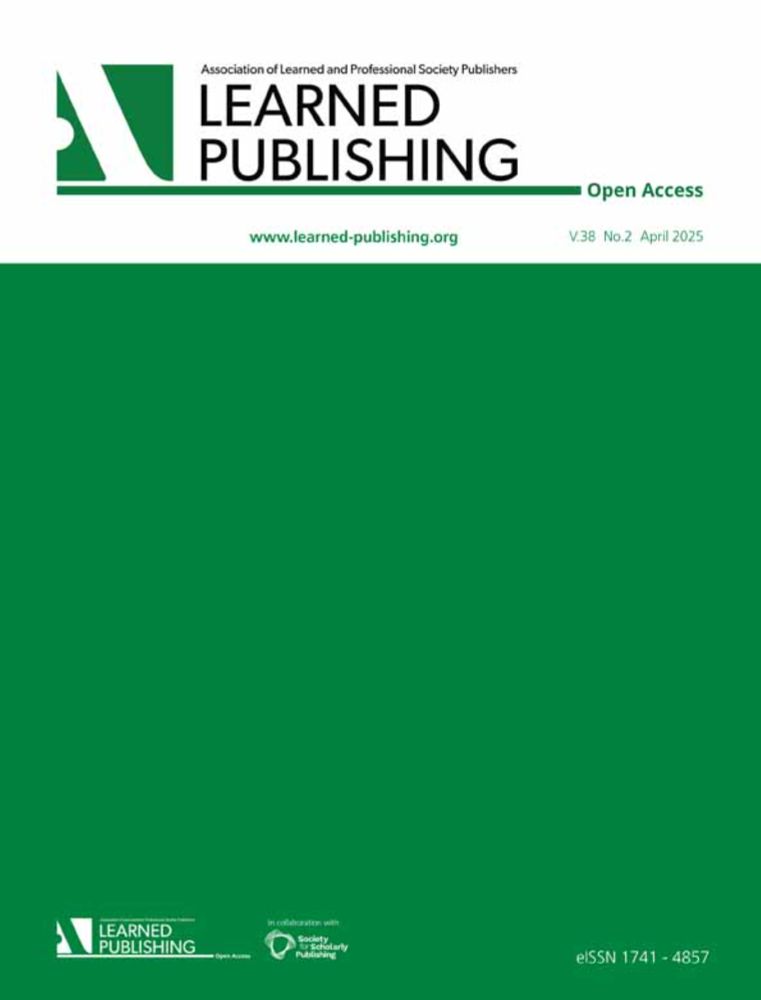
DeepGreen is automating OA article delivery, tackling complex metadata & tricky licensing. 163,750+ articles in, and more incoming! Can new licensing models improve green OA intake here?
Read 🔗 doi.org/10.1002/leap...
This study shows retractions are more common in high-pressure fields & often linked to self-citation. Should citation metrics also track retractions? Lots to think and takeaway from this one! ⬇️
🔗 doi.org/10.1371/jour...
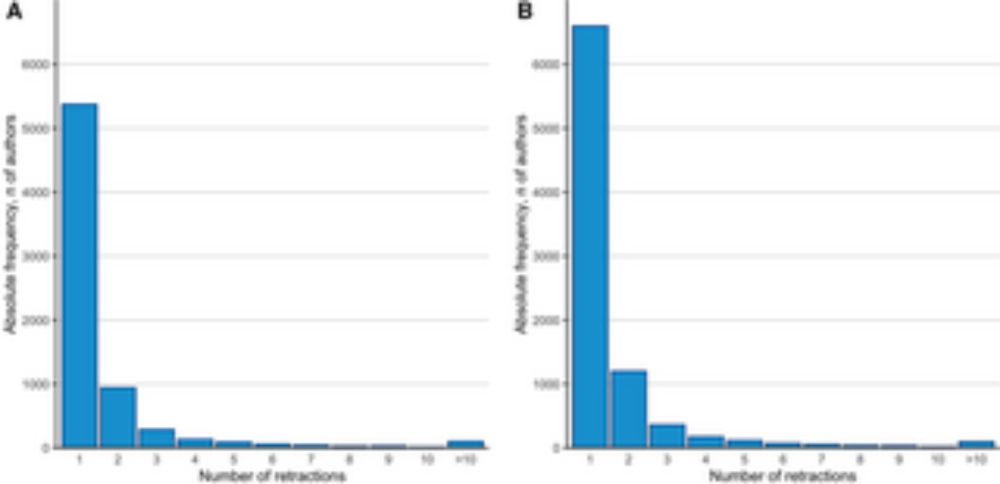
This study shows retractions are more common in high-pressure fields & often linked to self-citation. Should citation metrics also track retractions? Lots to think and takeaway from this one! ⬇️
🔗 doi.org/10.1371/jour...
Reflecting on 2024’s wins, appreciating our partners, and setting the stage for a year of impact in open, inclusive research. Wrapped up our morning with a great team lunch—fueling big plans ahead! Here’s to innovation & collaboration! 🥂
#KickOff2025 #TeamMSW
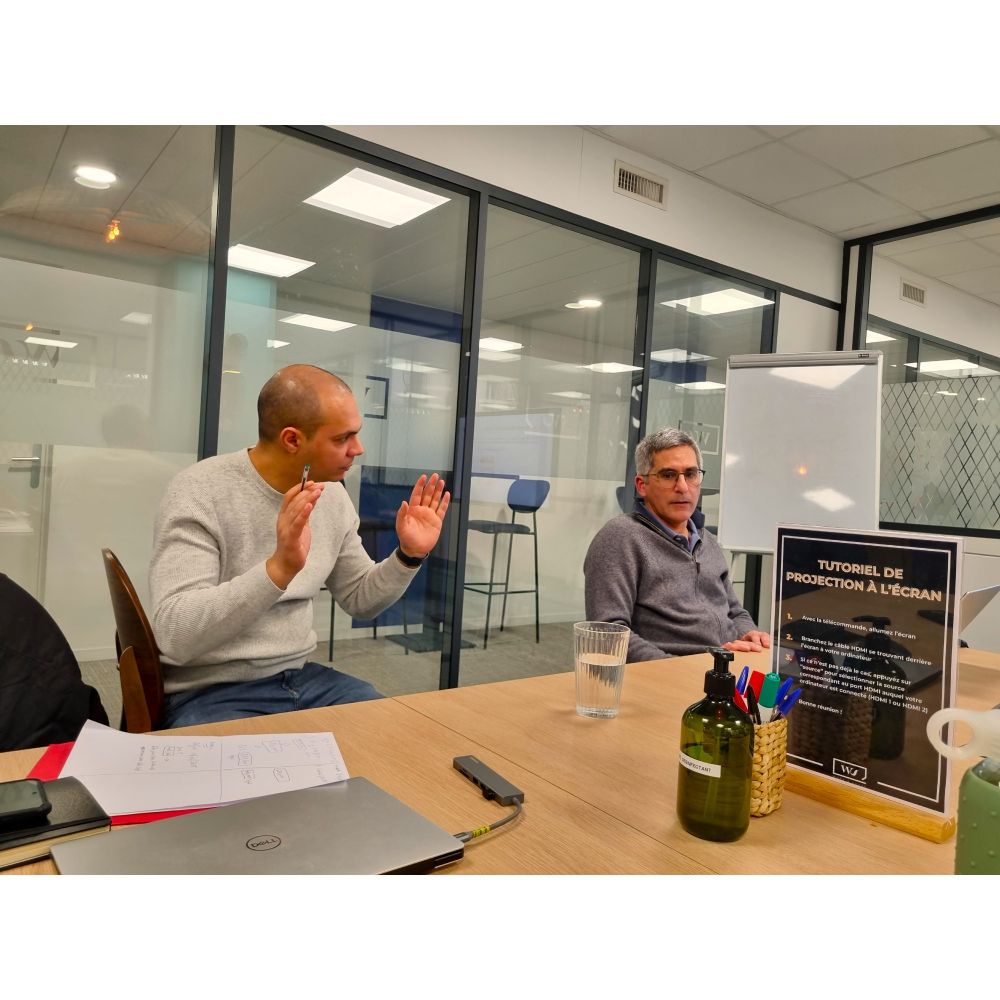
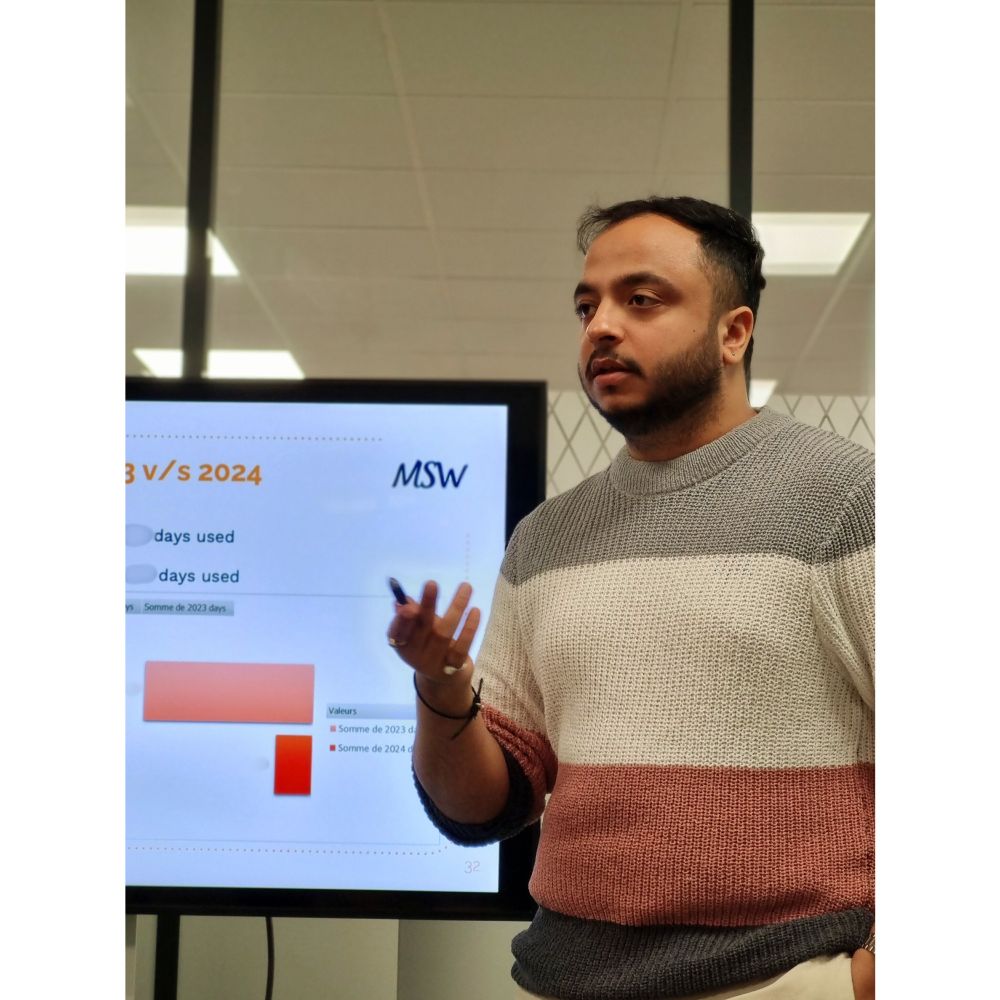
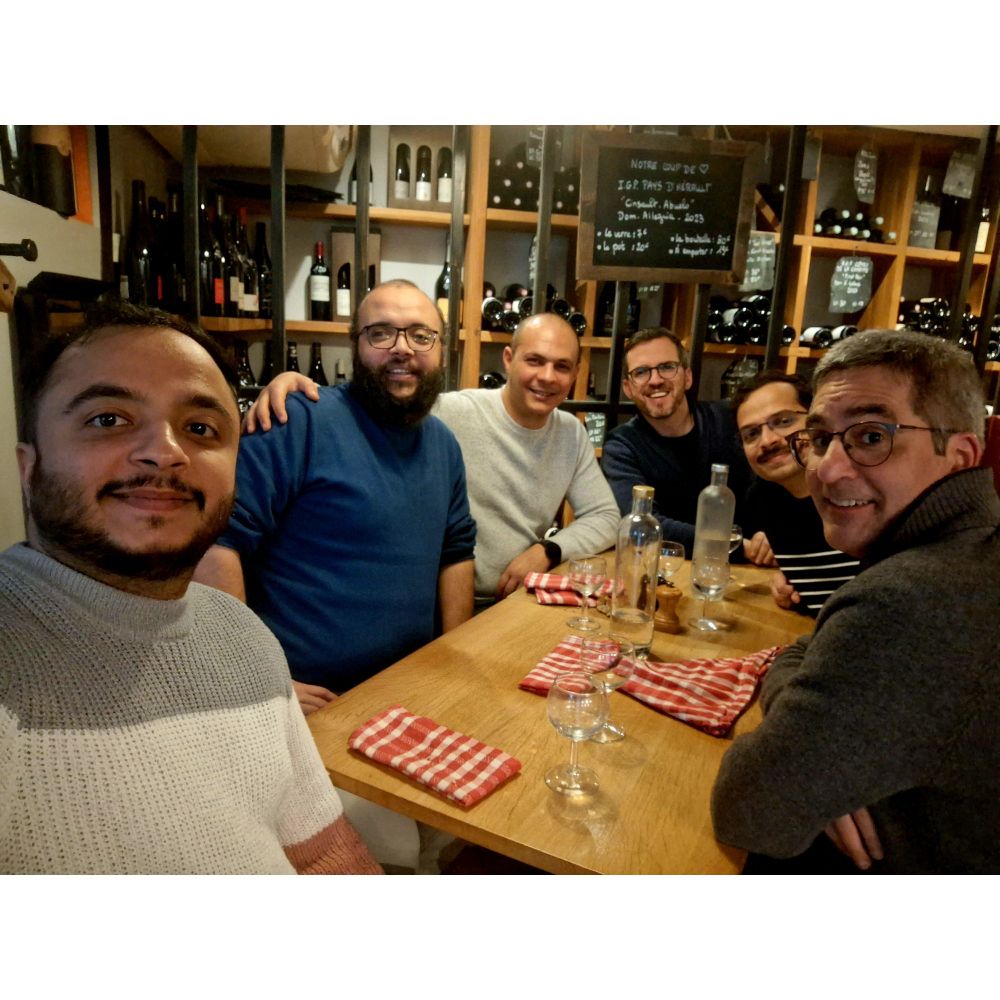
Reflecting on 2024’s wins, appreciating our partners, and setting the stage for a year of impact in open, inclusive research. Wrapped up our morning with a great team lunch—fueling big plans ahead! Here’s to innovation & collaboration! 🥂
#KickOff2025 #TeamMSW
This monumental study on @natureportfolio.nature.com dives into how institutions worldwide handle academic promotions!
What are your chances of going up that ladder? This study may certainly give you some ideas!
🔗 doi.org/10.1038/s415...
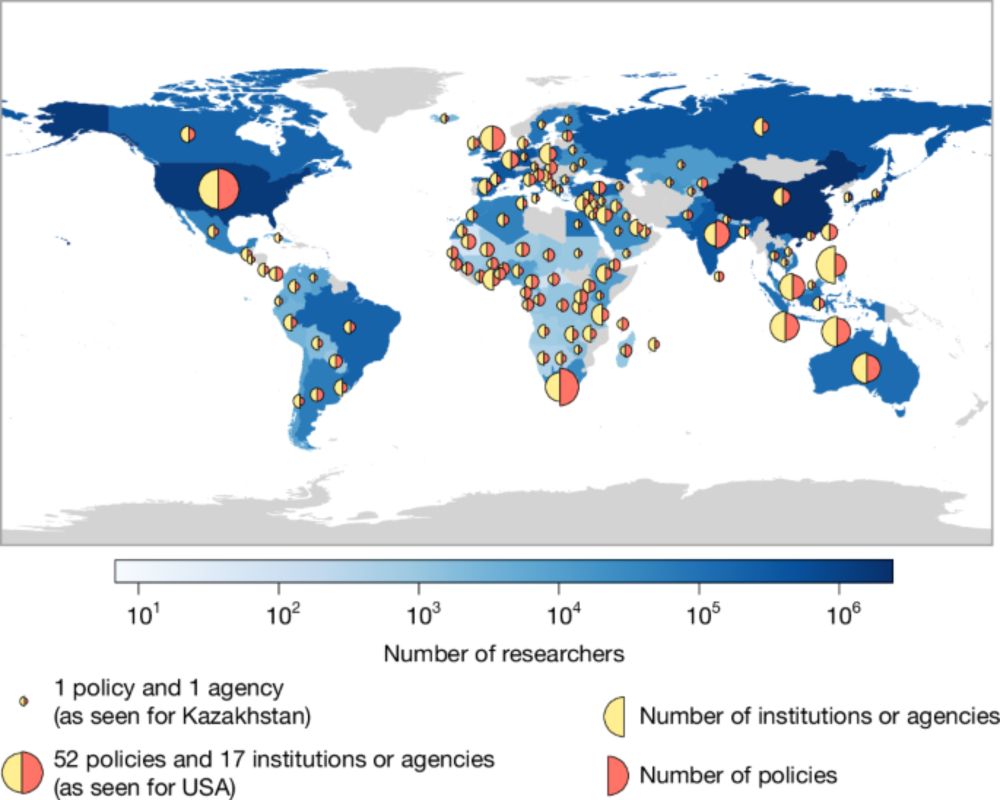
This monumental study on @natureportfolio.nature.com dives into how institutions worldwide handle academic promotions!
What are your chances of going up that ladder? This study may certainly give you some ideas!
🔗 doi.org/10.1038/s415...
72% of biomedical researchers say there’s a crisis, with pressure to publish and lack of institutional support to blame. What's causing this and what needs to change? Great study by Kelly Cobey and team!
🔗 doi.org/10.1371/jour...
#OpenScience
72% of biomedical researchers say there’s a crisis, with pressure to publish and lack of institutional support to blame. What's causing this and what needs to change? Great study by Kelly Cobey and team!
🔗 doi.org/10.1371/jour...
#OpenScience
But at what cost is this paper churning happening? This paper from @hansonmark.bsky.social and team provides some great insights! 🧐
🔗 doi.org/10.1162/qss_...
#OpenScience #AcademicPublishing

But at what cost is this paper churning happening? This paper from @hansonmark.bsky.social and team provides some great insights! 🧐
🔗 doi.org/10.1162/qss_...
#OpenScience #AcademicPublishing
How can you use them in your research?
Read here > doi.org/10.48550/arX...
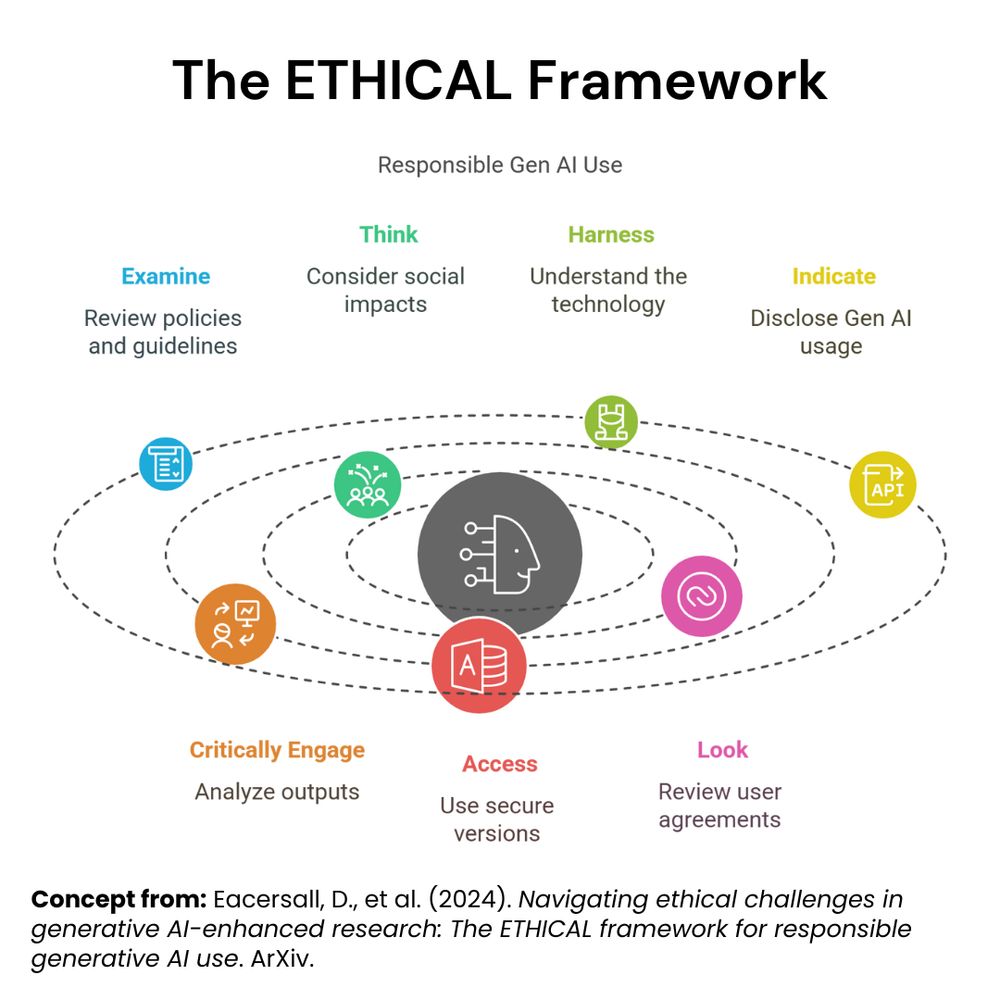
How can you use them in your research?
Read here > doi.org/10.48550/arX...
🤖 Can #ChatGPT help with #REF2029?
As UK universities prepare for REF2029, Kayvan Kousha & @mikethelwall.bsky.social explore whether AI can assess impact case studies. What are their findings & how can you use them in your prep?
Read the full @lseimpactblog.bsky.social article: shorturl.at/f2aBy

🤖 Can #ChatGPT help with #REF2029?
As UK universities prepare for REF2029, Kayvan Kousha & @mikethelwall.bsky.social explore whether AI can assess impact case studies. What are their findings & how can you use them in your prep?
Read the full @lseimpactblog.bsky.social article: shorturl.at/f2aBy
This article by @ginnybarbour.bsky.social et al. explains how databases like #WebofScience & #Scopus hinder platforms like @elife.bsky.social & calls for more flexible, innovation-friendly solutions.
🔗 doi.org/10.54900/d3c...

This article by @ginnybarbour.bsky.social et al. explains how databases like #WebofScience & #Scopus hinder platforms like @elife.bsky.social & calls for more flexible, innovation-friendly solutions.
🔗 doi.org/10.54900/d3c...
In this month's edition of the MSW Brief, we share our conversation with a university that is struggling with disconnected systems. How did the conversation go? Find out in your inbox this Friday > shorturl.at/bG6gX
#CRIS #ResearchInnovation
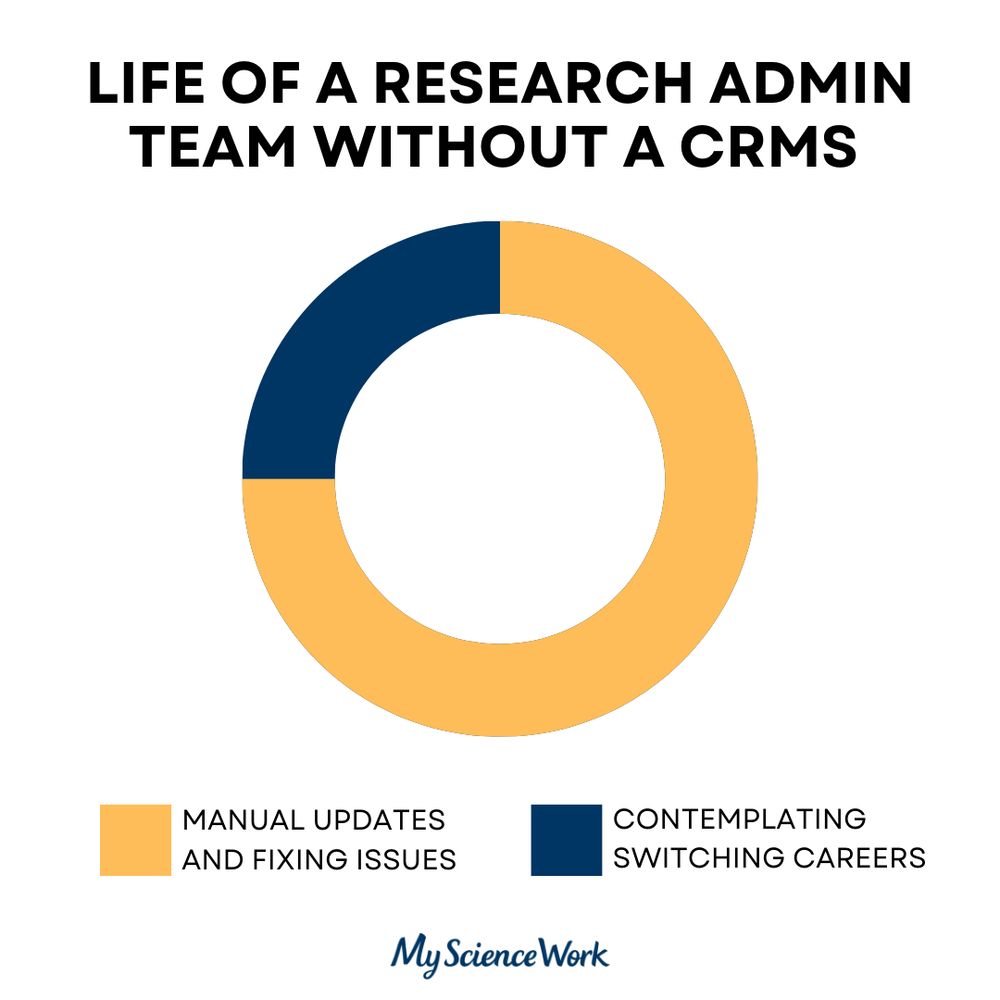
In this month's edition of the MSW Brief, we share our conversation with a university that is struggling with disconnected systems. How did the conversation go? Find out in your inbox this Friday > shorturl.at/bG6gX
#CRIS #ResearchInnovation
A recent paper on @pnas.org by Gerald Schweiger & team uncovers inefficiencies, biases in peer review, & how competitive funding often deters high-risk research. Food for thought indeed!
🔗 doi.org/10.1073/pnas...
#GrantManagement
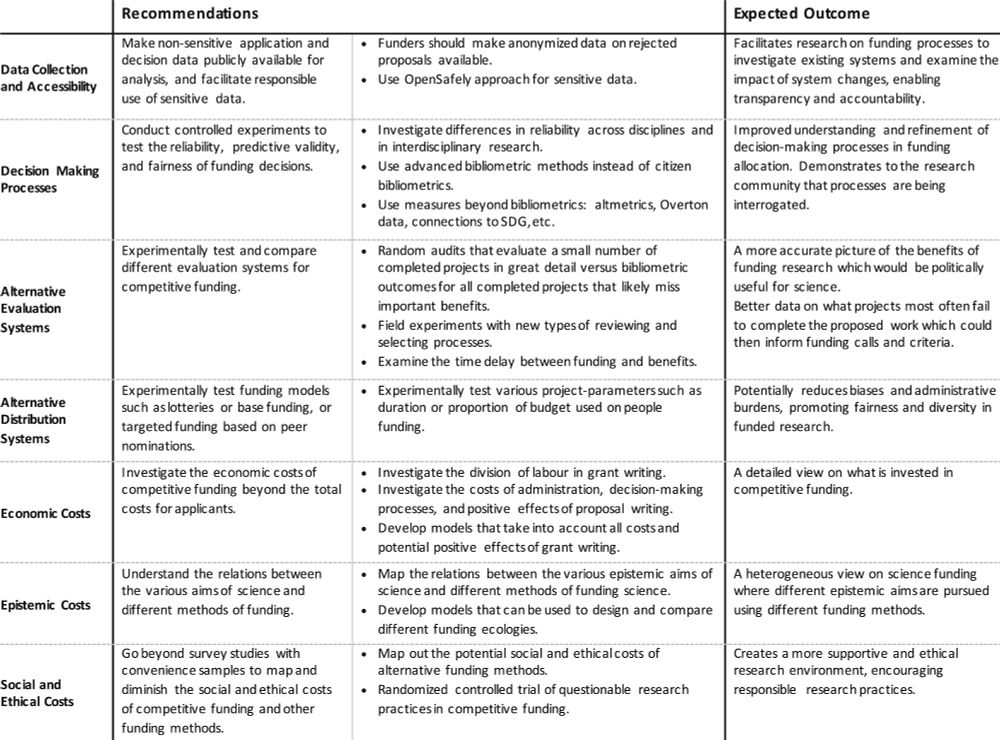
A recent paper on @pnas.org by Gerald Schweiger & team uncovers inefficiencies, biases in peer review, & how competitive funding often deters high-risk research. Food for thought indeed!
🔗 doi.org/10.1073/pnas...
#GrantManagement
Full preprint > doi.org/10.48550/arX...
@ntnu-iss.bsky.social @ntnu-econ.bsky.social
#AIResearch #OpenScience
Full preprint > doi.org/10.48550/arX...
@ntnu-iss.bsky.social @ntnu-econ.bsky.social
#AIResearch #OpenScience

